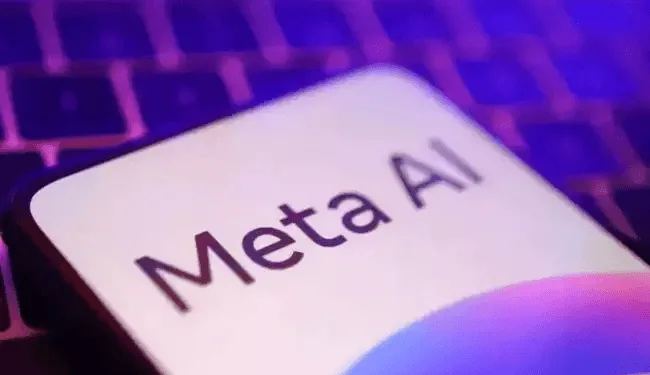Meta’s Disbanding of Fact-Checking Programs Raises Alarm Globally
Meta’s recent decision to dissolve its fact-checking and diversity programs has sparked concern among advocates of truth and transparency, particularly in regions like India, where misinformation runs rampant. Amid the global disinformation crisis, fact-checkers have long been at the forefront, playing a critical role in safeguarding democracy and ensuring that the public remains informed. Meta’s retreat from its responsibility—widely interpreted as an attempt to placate political developments in the U.S.—has left a void in efforts to combat fake news, both in the West and in emerging democracies like India.
In India, disinformation has far-reaching consequences, influencing political outcomes, public health, and social cohesion. With Meta’s fact-checking programs dismantled, the fight against misinformation now leans more heavily on alternate tools like AI-driven platforms and community-led initiatives like Community Notes. However, these alternatives carry their own limitations and biases, posing new challenges for those trying to navigate the complex landscape of truth and fiction.
Struggles of Domestic Violence Survivors: A Legal and Social Crisis
For women in India facing domestic violence, the battle often does not end with physical abuse. Survivors also contend with the heartbreaking loss of their children, who are sometimes forcibly abducted by their abusers or relatives. Despite the enactment of the Domestic Violence Act, 2005, India’s laws remain inadequate and slow-moving, leaving many women in a limbo of helplessness. In stark contrast, countries like the UK have criminalized parental kidnapping, providing an essential framework to protect mothers and children from such crimes.
Indian courts have made some strides toward remedying this imbalance, with growing recognition of the urgency of child custody cases in domestic violence scenarios. Yet, these advancements are often marred by procedural delays and ineffective legal tools. Legal experts suggest empowering aggrieved parents by enabling direct access to the High Court to seek the immediate return of abducted children through habeas corpus petitions under Article 226 of the Indian Constitution. This would enable faster, more efficient responses to such crises, ensuring that survivors are not left to languish in a slow-moving system.
Women Leaders in Uttarakhand: A Quiet Revolution in Rural Governance
For decades, India’s political scene was dominated by the image of male “pradhan patis”—men who wielded power on behalf of their wives in local panchayats. Although the 73rd Constitutional Amendment in 1992 reserved one-third of panchayat seats for women, this provision often remained symbolic, with women relegated to ceremonial roles while men controlled actual power.
However, in recent years, especially in regions like Uttarakhand, a seismic shift has taken place. As men migrate to urban centers in search of work, women have increasingly stepped into leadership roles, effectively reshaping the rural political landscape. These women leaders are no longer just placeholders for their husbands; they are tackling critical social issues, improving local schools, enhancing food security, and boosting public welfare. The changing dynamics in Uttarakhand illustrate a broader trend in women’s empowerment, challenging long-held patriarchal norms and creating new spaces for women in governance.
Delhi’s Health Crisis: DGHS Under Fire for Violations and Mismanagement
In Delhi, the Directorate General of Health Services (DGHS) has faced intense scrutiny following a The Probe investigation revealing a series of serious violations by private hospitals in the city. Hospitals were found operating with expired licenses and breaching various health norms, yet the DGHS appeared either unaware or unwilling to act. Even when pressed for information under the Right to Information (RTI) Act, the DGHS provided misleading responses, fueling concerns over corruption and inefficiency within the system.
The The Probe report led to intervention by the Central Information Commission (CIC), which imposed penalties on the DGHS and took punitive action against an officer found responsible for the violations. This marks a rare instance of accountability in India’s healthcare oversight system and has raised questions about the quality of governance in a critical sector that affects millions of citizens.
A Cross-Cutting Narrative: Striving for Justice and Accountability
These interconnected stories—Meta’s retreat from fact-checking, the struggles of domestic violence survivors, the empowerment of women leaders in rural India, and the failures of healthcare oversight—speak to broader challenges of social justice, transparency, and accountability in the country. Each represents a different facet of the complex fabric of Indian society, but all underscore the urgent need for reform.
As India continues to grapple with the challenges of misinformation, legal inadequacies, gender inequality, and institutional failure, the voices calling for justice are growing louder. From the battle for truth in the digital age to the fight for women’s rights and better public services, there is a shared demand for a more accountable, transparent, and equitable system.
For the country to progress, it will be essential to ensure that social justice initiatives and reforms are not merely symbolic but substantive—addressing real needs, empowering marginalized voices, and holding institutions accountable for their failures. Whether in combating disinformation or ensuring the safety of women and children, India stands at a critical juncture where these issues must be addressed with urgency and sincerity.














